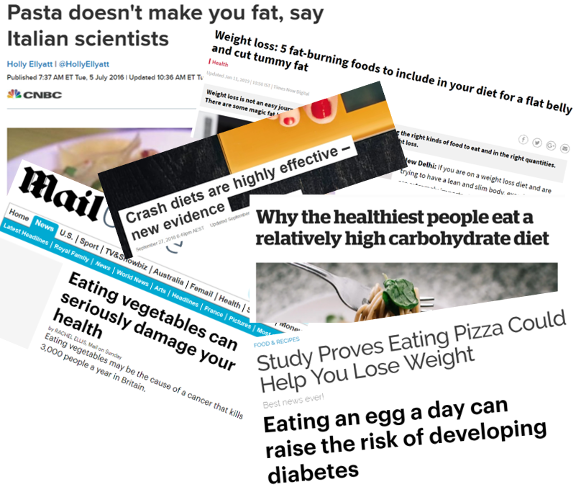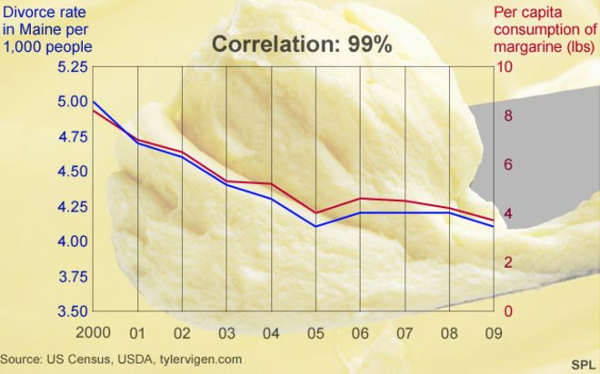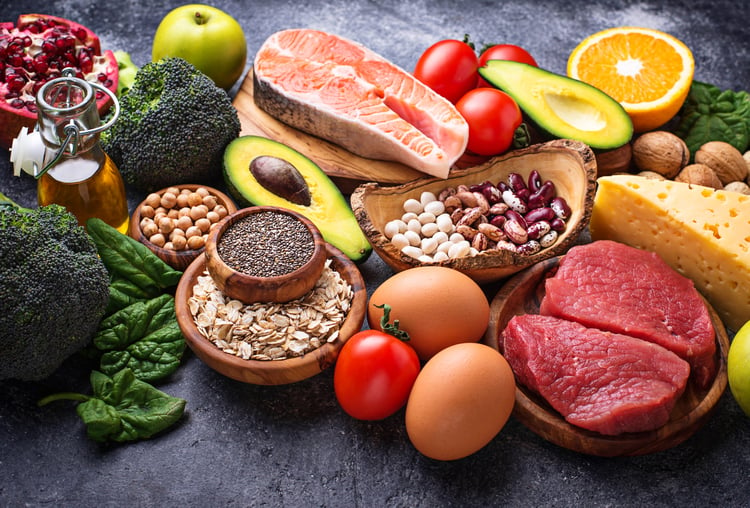Many of us might have come across scary nutrition-related headlines on the internet. Similarly, have you put in a seemingly simple nutrition question on Google and then ended up being even more confused than before?
With a plethora of diet and health information at our fingertips, it can be difficult to determine what is true.
Here are 5 top tips to help you determine fact from fiction!
Tip #1 - Make a Judgement Call: Is the Headline Just ‘Clickbait’?
Is the author simply using a punchy headline to draw you in and drive traffic to their website? If you suspect this to be the case, make sure to read the whole article and not just the headline. The conclusion of the article may be very different from the initial words that drew you in!
Tip #2 - Does the article mention any specific details about the scientific study it is based on?
If there is no mention of the actual study or studies that they are basing their piece on then that is already a bad sign! If the research is mentioned, try to find it online and give it a read; you should at least be able to have access to the abstract which is a quick summary of the work and results they found. Do further research to see if the study was done on animals or humans, the number of people involved in the study, the demographics of the people studied and the time period looked at etc. If the study looked at only four 75-year-old men of one ethnicity over a one-week period, the findings are unlikely to be representative of the global population!
Primary research comes in many forms and studying diet can be very complex due to many other factors in our lives that affect our health. Meta-analysis and systematic reviews summarise the findings of several primary research studies - if an article is based on this type of research you are on to a possible winner!
Article writers may cherry-pick scientific studies to create an interesting article, whilst ignoring the findings of a vast number of other studies done. Generally, one study is insufficient to yield a clear-cut conclusion, with further research required. As such, be sure to read around the topic.
Tip #3 - Correlation does not necessarily mean causation
Many authors sensationalize the findings of scientific research so be sure to read carefully to see if there is any weight behind what they are saying.
Often, authors that cover nutrition-related topics have not got a scientific background and hence may misinterpret the findings of a study. A correlation between two variables does not always mean one causes the other, there may be many other factors involved. Things are generally a lot more complicated than they initially seem! Refer to the below for example:
Tip #4 - Who carried and funded the research?
When it comes to published scientific studies in academic journals, all sources of funding and potential conflicts of interest must be disclosed; this is, however, not the case for articles referencing the work in mainstream media coverage. If a study is partially or solely funded by an organisation that will benefit personally or financially from the results make sure to read around the topic; look to see if there have been any other similar studies and if they have come to the same conclusion.
Tip #5 - Cross-research: What reputable organisations have to say
Large organisations like the World Health Organisation, Singapore’s Health Promotion Board, British Nutrition Foundation, The National Health Service and American Nutrition Association have comprehensive websites with a lot of great science-based nutrition information which you can refer to when in doubt.
Hopefully, you are now more analytical about everything you read. Nutrition, while being complicated, is an extremely interesting area to study and there is a lot of great research being done. There are a lot of amazing nutrition resources out there with simple and easy advice but don’t believe everything you see in the media otherwise there will probably be nothing left for you to eat!


.png?width=301&height=187&name=Website%20Navigation%20Images%20(3).png)

-1.jpg?width=1984&height=1196&name=UFIT%20Club%20Street%20Front%20(4)-1.jpg)









